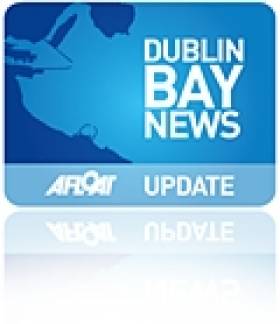Displaying items by tag: Irish Seafarers
#IRISH SEAFARERS –In an update to the annual National Commemoration Services for Irish Seafarers to be held in Dublin and Cork on Sunday (25 November), the capital's commemoration will commence with a Memorial Mass at 11:30am in the Church of the Immaculate Conception at City Quay.
Wreaths will be laid at the Irish Seaman's National Memorial which is located also on City Quay, close to Pearse Street DART station. Light refreshments will be available during this occasion. After a break for lunch the company will reassemble for Evensong at 3.15 pm in St. Patrick's Cathedral.
The commemoration in Cork City will also be held on the same Sunday at 12.00 noon with an ecumenical service in the Board Room of the Port of Cork Company offices on Customs House Quay, Cork.
National Commemoration Services for Irish Seafarers
#IRISH SEAFARERS –The annual National Commemoration Services for Irish Seafarers will be held on the morning of Sunday 25 November at 11.30. The occasion will see wreaths laid at the Irish Seaman's National Memorial on City Quay, Dublin.
Light refreshments will be available during the memorial event. After a break for lunch the company will reassemble for Evensong at 3.15 pm in St. Patrick's Cathedral.
The commemoration in Cork will also be on the same day beginning at 12.00 noon where a ecumenical service will be in the Board Room of the Port of Cork on Customs House Quay.
Easter Sunday Marks Rebirth of Mariners Maritime Museum
#MARTIME MUSEUM AT EASTER - Earlier this week Dun Laoghaire's maritime museum re-opened its doors to the public after a €4m renovation project was carried out on the apt venue of the former Mariners Church, which incidentally closed on this Easter Day forty years ago, writes Jehan Ashmore.
With a new lease of life the extensively renovated and upgraded museum can look forward to a future. Visitors enter the museum at a new entrance, where in the reception foyer there is a souvenir shop, beyond that in the main body or nave are exhibits displayed, each telling a story and for children there is a Knott Station. To view the initial exhibits on display, click HERE.
In addition there is new facility in the form of a café, which was much needed and where two new stained -glass windows by Peadar Lamb feature, they were sponsored by the Dun Laoghaire Harbour Company. As for the original stained-class windows they were restored to their full glory.
The renovation began in 2006 and was funded by the Government which led to a three-phrased project that involved work carried out from the re-roofing right down to the floorboards. Walls were re-plastered, electric systems modernised and wheel chair-lift and ramps installed.
Work also took place to clean the exterior of the stone-cut granite building hewn from Dalkey Quarry and which led to the consecration of the Kingstown Episcopalian Mariners Church in 1843.
After many generations of mariners and their families, parish numbers dwindled and its use as place worship ended on Easter Sunday 1972. The Maritime Institute of Ireland which runs the museum relocated two years later having had a smaller museum sited along the town's harbour waterfront.
For the next three decades the museum which has attracted locals and visitors from home and overseas, eventually had to close due to deteriorating conditions of an aging building.
Now that the museum is up and running, the M.I.I. which is staffed by volunteers has in recent years also had the support of a FAS scheme of workers, which according to the institute have been invaluable.
The museum is open 11am to 5pm Tuesday to Sunday and every Bank Holiday, for further information visit: www.mariner.ie


























































